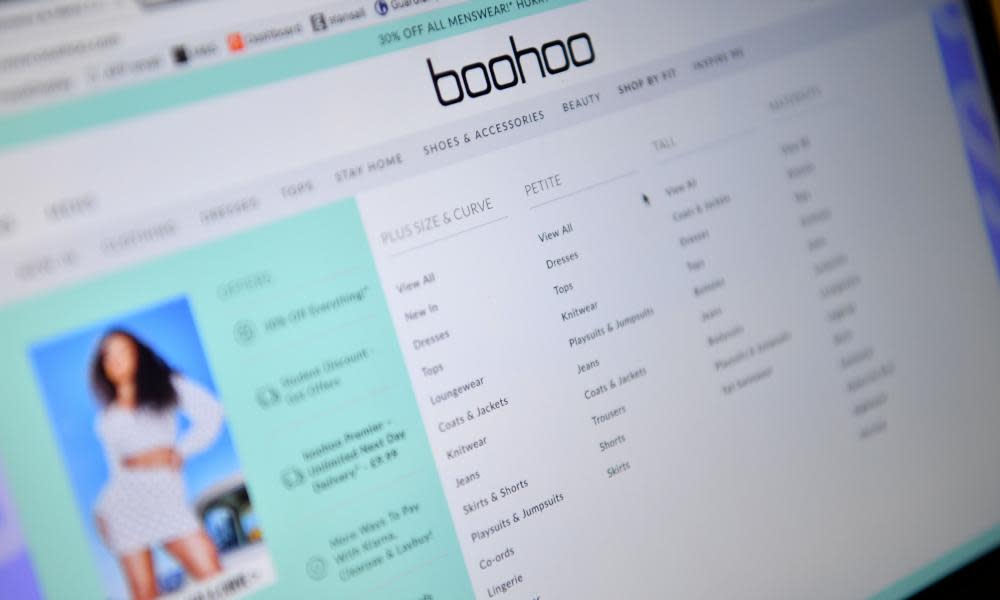Boohoo shareholder sells off shares in firm worth nearly £80m

One of Boohoo’s largest shareholders has sold off more than half its stake in the online fashion retailer, saying its response to reports of poor working conditions in its supply chain had been inadequate.
Aberdeen Standard Investments sold off 27m shares this week, worth nearly £80m at Thursday’s closing price, as it said recent events had knocked its conviction that Boohoo was improving standards. It is not clear if Aberdeen intends to sell its remaining 13m shares.
Related: Boohoo co-founder Jalal Kamani linked to Leicester garment factory
Lesley Duncan, the deputy head of UK equities at Aberdeen Standard, said it had invested in Boohoo when it listed on the stock market in 2015, at which point the company met its ethical criteria.
She said: “Over the years we have lobbied the company to improve its management of supply chain transparency, environmental efficiency and working conditions. While we would have liked progress to have been quicker we did feel that progress was being made.
“However, in the last few weeks our concerns have grown on the progress being made, which even before recent developments had negatively impacted our conviction levels in the company. Having spoken to Boohoo’s management team a number of times this week in light of recent concerning allegations, we view their response as inadequate in scope, timeliness and gravity.”
Duncan said Aberdeen standard tried to use its influence as an investor to prompt change. “In instances where our standards have not been met, divestment is both appropriate as responsible stewards of our clients’ capital and aligned to our goal of investing for better outcomes,” she said.
Shares in Boohoo dropped nearly 3% on Friday, partly reversing a bounceback on Thursday from three days of declines. The shares have dived 28% in a week, wiping £1.4bn off the value of the company. The hit came after allegations that factories in Leicester supplying the company, which owns a string of brands including Nasty Gal and Pretty Little Thing, paid workers below the minimum wage and failed to protect them from the coronavirus outbreak.

 Yahoo News
Yahoo News 
